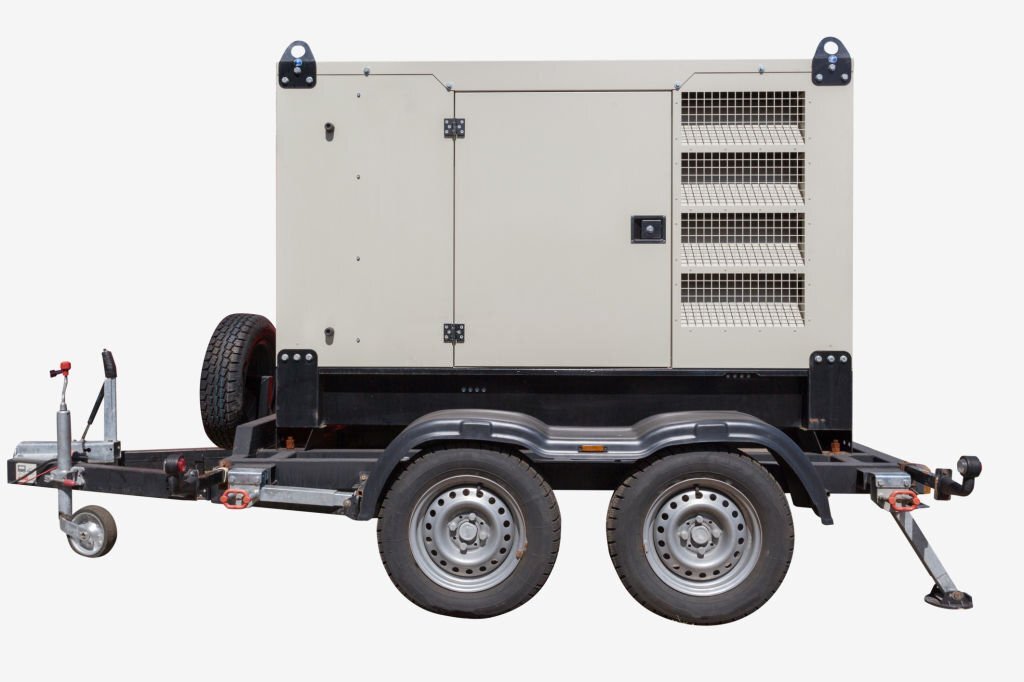
In the vast landscape of heavy equipment operations, the need for power knows no boundaries, whether in the heart of urban centers or far-flung remote regions. The question of using power generators for heavy equipment in remote or off-grid locations is central to ensuring operational efficiency, even in the most challenging environments. In this comprehensive article, we embark on a journey to explore the possibilities, advantages, challenges, fuel options, sustainability considerations, applications, and best practices associated with utilizing power generators in remote or off-grid locations.
Understanding Remote and Off-Grid Locations
Remote and off-grid locations lack access to traditional power infrastructure.
1. No Power Infrastructure: Remote areas may lack power lines and grid connections.
2. Challenging Environments: Off-grid locations can include rugged terrains, deserts, forests, and other inhospitable landscapes.
3. Limited Resources: Scarcity of resources necessitates self-sufficient energy solutions.
4. Unique Applications: Remote operations range from construction and mining to disaster relief and scientific research.
Types of Power Generators for Remote Use
A variety of generator types cater to power needs in remote environments.
1. Diesel Generators: Diesel generators are reliable and fuel-efficient, ideal for extended operations.
2. Gasoline Generators: Gasoline generators are portable and convenient for shorter-term projects.
3. Propane/Natural Gas Generators: Clean-burning generators are suitable for environmentally sensitive areas.
4. Solar Generators: Solar generators harness sunlight for clean and renewable energy.
Fuel Options for Remote Generators
Fuel availability is a crucial factor in remote generator operations.
1. Diesel Fuel: Diesel is a common fuel choice due to its high energy density and storage stability.
2. Gasoline: Gasoline is readily available but may require more frequent refueling.
3. Propane/Natural Gas: Propane and natural gas generators offer cleaner emissions but require proper storage.
4. Biofuels: Eco-friendly biofuels can be used to reduce environmental impact.
Operational Challenges in Remote Settings
Remote environments present unique challenges for generator use.
1. Fuel Logistics: Transporting and storing fuel can be challenging in remote areas.
2. Maintenance: Limited access to service facilities requires self-sufficiency in maintenance.
3. Extreme Conditions: Generators must withstand harsh weather conditions, such as extreme temperatures and humidity.
4. Security: Preventing fuel theft and ensuring generator security is essential.
Benefits of Using Generators in Remote Locations
Power generators offer several advantages in remote and off-grid locations.
1. Independence: Generators provide self-sufficiency and independence from unreliable power grids.
2. Flexible Deployment: Portable generators can be transported to various locations as needed.
3. Immediate Power: Generators offer instant power supply, critical for time-sensitive operations.
4. Emergency Response: Generators play a vital role in disaster relief and emergency response.
Sustainability Considerations
Sustainability is a growing concern in remote generator use.
1. Environmental Impact: Emissions from generators can impact fragile ecosystems in remote areas.
2. Eco-Friendly Fuels: Using cleaner fuels or renewable energy sources reduces environmental impact.
3. Fuel Efficiency: Efficient generator operation minimizes fuel consumption and emissions.
Applications of Remote Generator Use
Generators find applications in various industries and activities in remote settings.
1. Mining and Exploration: Remote mining sites rely on generators for power supply.
2. Construction: Construction projects in remote areas require temporary power solutions.
3. Telecommunications: Remote communication towers and networks use generators for backup power.
4. Scientific Research: Remote research stations and expeditions use generators to power equipment.
Best Practices for Remote Generator Operations
Efficient operations in remote locations require strategic planning.
1. Fuel Planning: Calculate fuel requirements and arrange for reliable fuel delivery.
2. Maintenance Kits: Carry essential maintenance tools and spare parts for on-site repairs.
3. Environmental Compliance: Adhere to environmental regulations to minimize impact.
4. Security Measures: Implement security measures to prevent theft and vandalism.
Future Trends and Technological Advancements
Advancements in technology are shaping the future of remote generator operations.
1. Hybrid Systems: Combining generators with renewable energy sources enhances sustainability.
2. Remote Monitoring: Real-time monitoring technologies enable remote management of generators.
3. Efficiency Upgrades: Advanced technologies optimize fuel efficiency in remote settings.
Conclusion
The utilization of power generators for heavy equipment in remote or off-grid locations is a testament to human ingenuity and adaptability. As industries continue to expand into uncharted territories, the role of generators becomes ever more significant in enabling seamless operations. By understanding the various generator types, fuel options, challenges, benefits, and best practices, heavy equipment operators can harness the power of generators to conquer the challenges of remote and off-grid environments, ensuring reliability, sustainability, and operational success.

